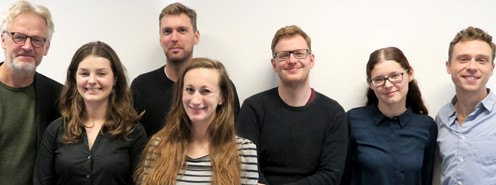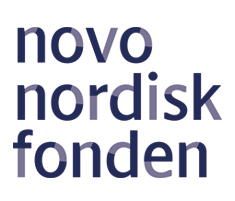
Convergent ethics and ethics of controversy (CEEC)
The overall goal of CEEC is to rethink the ethics and democratic regulation of novel biotechnologies. A dominant contemporary narrative holds that novel biotechnologies are potentially beneficial, yet may also be ethically problematic. This narrative reflects public scepticism toward biotechnologies – a scepticism that is expected to be reflected in legitimate governance.
CEEC will address and challenge this dominant narrative in three ways:
- First, CEEC argues that, far from being opposed to biotechnology, major ethical theories such as consequentialism, deontology, contractualism, and virtue ethics are supportive if certain requirements are satisfied. Specifically, we argue that the major ethical theories converge on accepting applications of novel biotechnologies on condition of relevant consent, sufficient benefit, acceptable levels of risk, and a fair distribution of benefits and burdens of application.
- Second, empirical work in cognitive psychology has documented important mechanisms that are likely to drive the public scepticism against novel biotechnologies. We are strongly inclined to use our cognition to sustain factual beliefs that support our identities and to defend against information that is perceived as a threat, leading us to biased information processing, to rejecting facts and evidence, and to accepting inflated assessments of risks (identity-protective cognition). CEEC will carry out new research on identity-protective cognition and controversial biotechnology in Danish and European contexts.
- Thirdly, CEEC will argue that mainstream theories of democratic legitimacy do not straightforwardly support the view that regulations of novel biotechnologies should reflect public scepticism towards new biotechnologies, when that scepticism is grounded in mistaken factual beliefs or in controversial fundamental values.
CEEC is supported by a generous grant by Novo Nordisk Fonden (10 mill DKK), and is headed by professor Klemens Kappel. The project commenced 1.2.2018 and is expected to be completed by January 2021.
Complete project description (pdf).
Novel biotechnologies such as gene-modified organisms (GMO), personalized medicine, and stem cell technologies are often controversial in the public and met with scepticism by certain groups of citizens. A dominant narrative holds that though novel biotechnologies are potentially beneficial they are nevertheless ethically problematic. Second, according to this dominant narrative, the public scepticism towards novel biotechnologies does, in fact, reflect these genuine ethical problems – citizens are sceptical because of these ethical aspects. Third, a regulation of novel biotechnologies would have to reflect this public scepticism of the technologies if it were to be democratic legitimate.
However, there may be good reasons for questioning this dominant narrative: each element of the narrative may be problematic. The following question may arise. Are novel biotechnologies really ethically problematic? That is, do the major ethical theories (consequentialism, deontology, contractualism, and virtue ethics) uniformly find novel biotechnologies to be problematic? In relation to this, does public scepticism actually reflect genuine ethical problems concerning biotechnologies – or is this scepticism instead founded on other psychological mechanisms that are more related to identity and other associated social aspects than reasonable ethical standpoints? Lastly, is it required for a democratic regulation of novel biotechnologies to be legitimate that it reflects this public scepticism even though this scepticism may be founded on unreasonable and irrational grounds? Are mainstream democratic theories straightforwardly support this view on legitimacy?
Hedinsdottir, K. & Kongsholm, N. C. H. (2018). Hvilken etisk fordring? Bibliotek for Læger, 210 (2): 248-257.
Christiansen, Andreas & Hallsson, Bjrøn Gunnar (2017): Democratic Decision Making and the Psychology of Risk. Les Ateliers de l’éthique, Bind 12, Nr. 1, 09.12.2017, s. 51-83.
Christiansen, Andreas; Jønch-Clausen, Karin; Kappel, Klemens. Does Controversial Science Call For Public Participation? The Case Of Gmo Skepticism. Les Ateliers de l’éthique, Bind 12, Nr. 1, 09.12.2017, s. 26-50.
Christiansen, Andreas. On the Cognitive Argument for Cost-Benefit Analysis Ethical Theory and Moral Practice, April 2018,Volume 21, Issue 2, pp 217–230.
Østerberg, Jeppe Thulin; Xiang, Wen; Olsen, Lene Irene; Edenbrandt, Anna Kristina; Vedel, Suzanne Elizabeth; Christiansen, Andreas; Landes, Xavier; Andersen, Martin Marchman; Pagh, Peter; Sandøe, Peter; Nielsen, John; Christensen, Søren Brøgger; Thorsen, Bo Jellesmark; Kappel, Klemens; Gamborg, Christian; Palmgren, Michael Broberg. Accelerating the domestication of new crops : feasibility and approaches. Trends in Plant Science, Bind 22, Nr. 5, 2017, s. 373-384.
Andersen, MM ; Landes, X ; Xiang, W ; Anyshchenko, A ; Falhof, J ; Osterberg, Jt ; Olsen, LI ; Edenbrandt, Ak ; Vedel, Se ; Thorsen, Bj ; Sandoe, P ; Gamborg, C ; Kappel, K ; Palmgren, MG. Feasibility of new breeding techniques for organic farming. Trends in Plant Science, July 2015, Vol. 20, No. 7.
Kongsholm, N. C. H., Christensen, S. T., Hermann, J. R., Larsen, L. A., Minssen, T., Pedersen, L. P., Rajam, N., Tommerup, N., Tupasela, A. & Schovsbo, J. (2018). Challenges for the Sustainability of University-Run Biobanks. Biopreservation and Biobanking, 16(4): 1-10.
Kongsholm, N. C. H. & Hedinsdottir, K. (2018). Kan DNA-oplysninger krænke danske borgeres privatliv? En analyse af dabatten vedrørende et Nationalt Genom Center. Bibliotek for Læger, 210 (1): 158-163.
Nielsen, M. E. J., Kongsholm, N. C. H. & Schovsbo, J. (2018). Property and Human Genetic Information. Journal of Community Genetics.
Kongsholm, N. C. H., Lassen, J. & Sandøe, P. (2018). “I didn’t have anything to decide, I wanted to help my kids” – An interview-based study of consent procedures for sampling human biological material for genetic research in rural Pakistan. AJOB Empirical Bioethics, May: 1-15.
Kongsholm, N. C. H. & Hedinsdottir, K. (2017). Tillidskrisen i det danske sundhedsvæsen – paternalisme, valgfrihed og patientmentalitetens dialektik. Bibliotek for Læger 209(4): 328-333.
Hedinsdottir, K. & Kongsholm, N. C. H. (2017). Stigmatiserer vi overvægtige patienter i sundhedsvæsnet? (Stigmatization of obese patients in the healthcare system) Bibliotek for Læger 209(3): 228-233.
Riso, B., Tupasela, A., Vears, D. F., Felzmann, H., Cockbain, J., Loi, M., Kongsholm, N. C. H., Zullo, S. & Rakic, V. (2017) Ethical sharing of health data in online platforms – which values should be considered? Life Sciences, Society and Policy 13(1):12.
Hedinsdottir, K. & Kongsholm, N. (2017). Har man ret til genoplivning? (Is there a right to resuscitation?) Bibliotek for Læger, 209(2): 94-98.
Kongsholm, N. C. H. & Hedinsdottir, K. (2017). Kan tillidsbaseret samtykke beskytte patientens autonomi? (Can trust-based consent protect patients’ autonomy?) Bibliotek for Læger, 209(1): 32-35.
Kongsholm, N. C. H. & Kappel, K. (2017). Is Consent Based on Trust Morally Inferior to Consent Based on Information? Bioethics, 31(6): 432-442.
Holtug, N., Kongsholm, N. C. H., Lægaard, S., Nielsen, M. E. J. (2009). Etik i Forebyggelse og Sundhedsfremme. København: Sundhedsstyrelsen.
Heðinsdóttir, Katla; Kondrup, Sara Vincentzen; Röcklinsberg, Helena; Gjerris, Mickey. Can friends be copied? Ethical aspects of cloning dogs as companion animals.Journal of Agricultural and Environmental Ethics, Bind 31, Nr. 1, 04.02.2018, s. 17-29.
Heðinsdóttir, Katla. Stephen M. Gardiner and David A. Weisbach: Debating Climate Ethics. Ethical Theory and Moral Practice, Bind 20, Nr. 4, 2017, s. 923-925.
Hallsson, B. G. (2018). The epistemic significance of political disagreement. Philosophical Studies, https://doi.org/10.1007/s11098-018-1121-8
Hallsson, B. G. & Kappel, K. (2018). Disagreement and the division of epistemic labor. Synthese, https://doi.org/10.1007/s11229-018-1788-6
Hallsson, B. G., Siebner, H. R. & Hulme, O. J. (2018). Fairness, fast and slow: a review of dual process models of fairness, Neuroscience and Biobehavioral Reviews 89, pp 49-60.
Pallavicini, J., Hallsson, B. G. & Kappel, K. (In press). Polarization in groups of Bayesian agents, Synthese.
Kappel, K., Hallsson, B. G. & Møller, E. F. L. (2016). Freedom of Expression, Diversity, and Truth. In: Lippert-Rasmussen, K.; Brownlee, K. & Coady, D. (Eds.) A Companion to Applied Philosophy, pp. 147-161, Wiley-Blackwell.Hallsson, B. G. & Kappel, K. (2017). "Klimaskeptikere er ikke dumme, de har bare andre værdier”. Videnskab.dk.
TV LORRY: Perspektiv 07.06.2018: Vi tror kun på videnskabelig fakta, der passer os
Ingeniøren 20.02.2018: Filosof: Folkelig modstand mod genmodificering fylder for meget
DR.dk 22.12.2017: Folkelig teknologi-modstand skal undersøges af filosoffer
Radio24syv 08.12.2017: 24 Spørgsmål til Professoren - Genteknologernes gave til økofolket
Radio24syv 12.08.2017: 4 Spørgsmål til Professoren - Filosof Klemens Kappel og psykolog Bjørn Hallsson, KU
Berlingske 10.08.2017: Faktaresistens: DU er også ligeglad med fakta
Zetland 23.07.2017: Hun er ikke alene: Du vælger også fakta, der bekræfter dine holdninger. Sådan undgår du det
Politiken 30.07.2017: Jorden er flad: Trump har gjort konspirationsteorier stuerene (kun for abonnenter)
K-News 05.04.2018: ’Magtens Tredeling’, ep. 2.8: ”Hvem har koden til dine inderste byggesten?”
- Maja Horst, professor and head of Department of Media, Cognition and Communication at UCPH
- Jesper Ryberg, professor at Department of Communication and Arts, Roskilde University
- Søren Brunak, professor at Center for Protein Research, UCPH
- Thomas G. Jensen, professor and head of Department of Biomedicine at Aarhus University
- Michael Palmgren, professor at Department of Plant and Environmental Sciences at UCPH
- Hans Wandall, professor at Department of Cellular and Molecular Medicine at UCPH
- Claus Yding Andersen, professor at Copenhagen University Hospital
- Morten Andreasen, academic staff at the Danish Ethical Council
- Elsebet Østergaard, Department of Clinical Medicine at UCPH
Researchers
| Name | Title | Phone | |
|---|---|---|---|
| Kappel, Klemens | Professor |
Student assistant
| Name | Title | Phone | |
|---|---|---|---|
| Nielsen, Victor Lange | Student |
Future and past activities
Workshop: Exploitation in Bioethics
08.11.2018 9.00, to 09.11.2018 16.00.
Room 15A.0.13, University of Copenhagen, Karen Blixens Plads 8, 2300 Copenhagen S.
Kick-off, ‘Convergent ethics and ethics of controversy’.
14.03.2018, 16.15-17.30.
Room 15A.1.11, University of Copenhagen, Karen Blixens Plads 8, 2300 Copenhagen S.
Public lecture on public scepticism and science communication by Bjørn Gunnar Hallsson at ‘Forskningens Dag 2018’.
20.09.2018
Read more (in Danish).
Public lecture by Bjørn Gunnar Hallsson at ‘Folkesundhedsdage 2018’.
24.09.2018.
Read more (in Danish).

